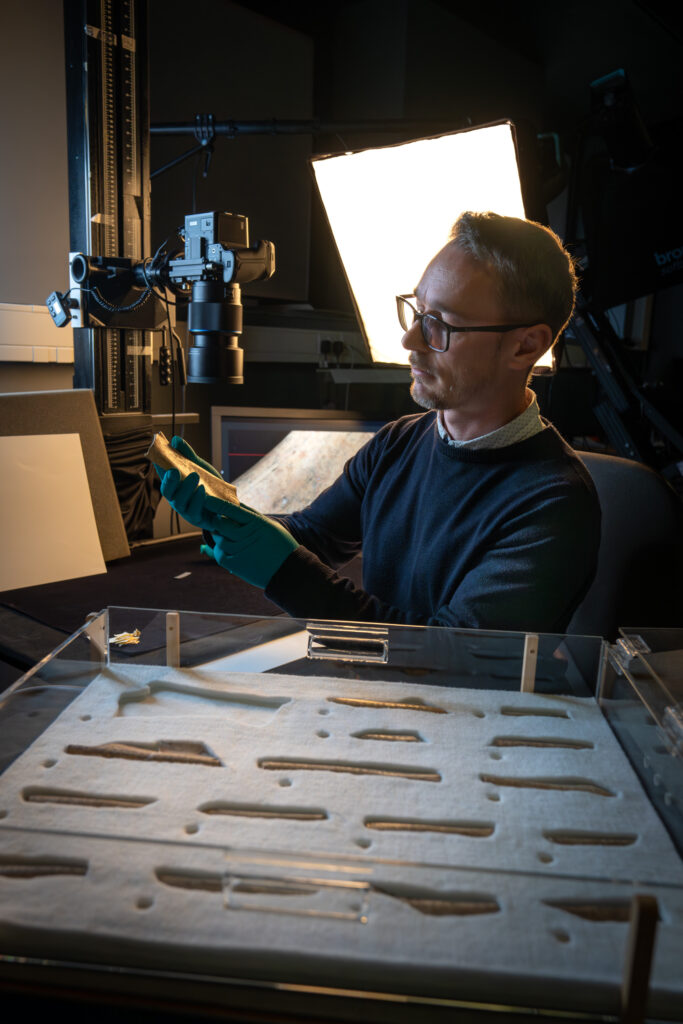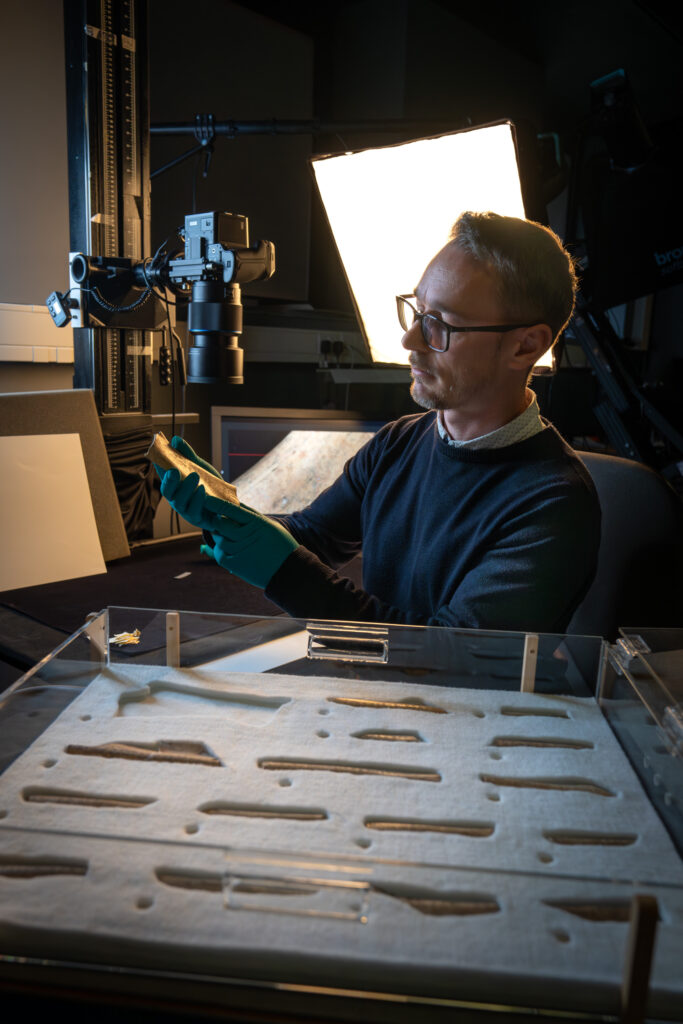
Dr Raad Khair Allah is an incoming IASH Digital Humanities Postdoctoral Fellow at the University of Edinburgh, where she will begin research on reimagining nationhood in Arab cultural and digital feminism. She has a PhD from the Faculty of Arts/ Department of English and Comparative Literary Studies, University of Warwick, UK (2025).
As an Associate Fellow at the Higher Education Academy, she has worked as a Senior Teaching Assistant in the same Department. She also works as a Sworn Translator and an Interpreter. She was a former member of the seminar series organising committee at CSWG/Centre for the Study of Women and Gender at the same institution for two years. She is also the organiser of the international hybrid Conference Radical Traditions: The Role of Contemporary Arab Women in Revolutionising Arab Patriarchal Society at the University of Warwick in 2024 to be a basis for a volume she is currently editing for Routledge. https://warwick.ac.uk/fac/arts/schoolforcross-facultystudies/igsd/sdgnetwork/arab/.
She was shortlisted for the Paula Svonkin Creative Art Award at the Pacific Ancient and Modern Language Association (PAMLA) Conference in Los Angeles, USA, 2022. In 2024, she was awarded the DAHL Hero Medal 2024 by The Digital Arts and Humanities Lab (DAHL) (University of Warwick). This recognition celebrates her groundbreaking digital project, Marginalization of Arab Women and Revolutionising Patriarchy.
In 2025, she received an award from Duke University, USA, granting her the opportunity to participate in the International Annual Feminist Theory Workshop. This renowned workshop, hosted by Gender, Sexuality, and Feminist Studies at Duke. In 2022, she was awarded Barker Visiting Fellowship from Durham University, and in 2024 she received Balzan Award from Harvard University.
Prior to joining the University of Warwick, she worked as an English Lecturer at Damascus University and also as an English Lecturer and a Proofreader at the Syrian Private University. She also worked as an English tutor and a human rights activist with Gopa Derd in cooperation with UN and UNICEF. She has several publications on feminism, war, AI, Miro software, and female issues in the Arab world and beyond as well as a book review on the representation of the human body, sexuality, and struggle in Contemporary Arab Art.
Research interests: Women’s Studies, Gender, Feminism in a Global Context, Sexuality, War, colonial and postcolonial studies, AI and Digital Humanities, the theory of world literature and the Muslim world.
1. How do you define Digital Humanities?
Digital Humanities is the interdisciplinary playground where technology and humanistic inquiry collide. It’s not just about using digital tools to study history, literature, or culture—it’s about reimagining the questions we can ask when data, algorithms, and creativity intersect. I see DH as a transformative lens: one that scales close readings into text mining, turns archives into immersive experiences, and challenges traditional boundaries between disciplines. It’s where the humanities evolve to meet the digital age—critically, ethically, and collaboratively.
2. How did you become interested in Digital Humanities?
My fascination with Digital Humanities began unexpectedly in a Warwick classroom, where Dr. Robert O’Toole’s Digital Humanities Course revealed how technology could breathe new life into humanistic inquiry — not as a passive tool, but as a disruptive force. That spark ignited when I used Miro to reimagine feminist pedagogy, turning static lectures into dynamic, decolonial dialogues. At the 119th PAMLA conference, I demonstrated how collaborative platforms like Miro could dismantle hierarchical narratives, a theme I expanded in my article on its pedagogical radicalism. Later, my digital project ‘Marginalisation of Arab Women and Revolutionising Patriarchy’ crystallized DH’s power: here was a discipline where theory became action, where interfaces like Miro or DAHL’s tools could literally reshape whose stories get told. Being shortlisted for the Paula Svonkin Creative Award (USA) in 2022 and earning the DAHL Hero Medal 2024 (University of Warwick) affirmed DH’s capacity to centre marginalized voices—not just in scholarship, but in the classroom, the conference hall, and beyond.
3. Tell us about one of your DH projects
One of my DH projects is titled Contemporary Arab Diasporas: Reimagining Nationhood in Arab Cultural and Digital Feminism. It is an interdisciplinary digital project that examines the literary and artistic contributions of Syrian and Palestinian women in the Western diaspora since the 1970s to nation-building.
By investigating how women leverage AI tools, such as Canva and Soundtrap, to create art, music, and literature that reflect their unique perspectives, her project highlights the interplay between transnational connections and their distinctive diaspora experience. It shows the relationship between the arts, technology, and society through showcasing how these elements interactively shape and influence nation-making narratives
By combining close readings with AI tools like Voyant Tools and Google Vision, the project reveals patterns and insights in cultural productions that traditional methods may overlook. This project will develop a searchable online database that serves as a comprehensive and accessible resource for researchers, educators, public engagement, and policymakers.
4. And a DH project you like?
“Politics, Popular Culture and the 2011 Egyptian Revolution” is a digital archive documenting the 25 January 2011 uprising and its aftermath through the prism of popular culture. It has been designed for both researchers and students interested in the 2011 Egyptian revolution, as well as contemporary Egypt and the relationship between politics and popular culture more broadly.
From pop music to graffiti to satirical TV shows, popular culture played a vital role in articulating political meaning ‘from below’ in the wake of the 25 January 2011 uprising. The archive includes a wide range of Egyptian popular cultural texts and seeks to create a greater understanding of the significance of the 2011 uprising and its aftermath for everyday Egyptians as well as the relationship between politics and popular culture in a revolutionary context.
Rather than limiting itself to documenting those popular cultural texts that were ‘popular’ in the sense of being widely consumed or consumed by ‘ordinary’ people, this archive includes a wide range of cultural texts that, in some way, have sought to define who are ‘the people’ and what did they really want, in the context of the 2011 Egyptian revolution and its aftermath.
In this way, the archive places ‘the people’ back at the centre of scholarly understanding of the tumultuous events after 2011, amidst official attempts to script a history-still-in-the-making and erase alternative narratives.
介绍Raad Khair Allah博士

Raad Khair Allah博士即将成为爱丁堡大学(University of Edinburgh)IASH数字人文学科博士后研究员,她将在该校开始关于阿拉伯文化与数字女性主义中重新构想国家认同的研究。她于2025年获得英国华威大学(University of Warwick)文学院英语与比较文学系博士学位。
作为高等教育学院的副研究员(Associate Fellow),她曾在同一系担任高级助教(Senior Teaching Assistant)。她同时也是一名宣誓译员和口译员。她曾在该校妇女与性别研究中心(CSWG/Centre for the Study of Women and Gender)担任研讨会系列组织委员会成员,为期两年。她还于2024年在华威大学组织了一场国际混合形式会议——“激进传统:当代阿拉伯女性在革新阿拉伯父权社会中的角色”,该会议将作为她目前为Routledge编辑的一本论文集的基础。https://warwick.ac.uk/fac/arts/schoolforcross-facultystudies/igsd/sdgnetwork/arab/
她曾入围2022年在美国洛杉矶举行的太平洋古今语言协会(PAMLA)年会的保拉·斯文金(Paula Svonkin)创意艺术奖。2024年,她荣获由华威大学数字艺术与人文学实验室(DAHL)颁发的“2024 DAHL英雄奖章”(DAHL Hero Medal 2024),以表彰她开创性的数字项目《阿拉伯女性的边缘化与父权体制的革新》。
2025年,她获得美国杜克大学的奖项,并有机会参加该校举办的“国际女性主义理论年度研讨会”(International Annual Feminist Theory Workshop)。这一著名研讨会由杜克大学性别、性取向与女性主义研究系(Gender, Sexuality, and Feminist Studies)主办。2022年,她获得英国杜伦大学的巴克访问学者奖(Barker Visiting Fellowship),2024年又获得哈佛大学颁发的巴尔赞奖(Balzan Award)。
在加入华威大学之前,她曾在大马士革大学担任英语讲师,也曾在叙利亚私立大学担任英语讲师和校对员。同时,她还曾与联合国和联合国儿童基金会合作,在Gopa Derd组织担任英语辅导教师和人权活动家。
她在女性主义、战争、人工智能、Miro软件、阿拉伯世界及更广泛范围内的女性问题等领域发表了多篇学术作品,并撰写了关于当代阿拉伯艺术中人体、性与抗争表现的书评。
研究兴趣:女性研究、性别研究、全球背景下的女性主义、性研究、战争、殖民与后殖民研究、人工智能与数字人文学、世界文学理论与穆斯林世界。
1. 你如何定义数字人文?
数字人文学是一个跨学科的“游乐场”,在这里,技术与人文探索相互碰撞。它不仅仅是利用数字工具来研究历史、文学或文化,更是在数据、算法与创造力交汇之时,重新想象我们能够提出的问题。我认为数字人文学是一种变革性的视角:它将精读扩展为文本挖掘,把档案转化为沉浸式体验,并挑战学科之间的传统界限。这是人文学科在面对数字时代时的演变之路——以批判性、伦理性与协作精神为核心。
2. 你是如何对数字人文产生兴趣的?
我对数字人文学的兴趣,始于一次意想不到的经历——在华威大学的课堂上,罗伯特·奥图尔博士(Dr. Robert O’Toole)的数字人文学课程向我展示了技术如何为人文探索注入新生命。技术不再是一个被动的工具,而是一种颠覆性的力量。那一刻的灵感火花源于我使用Miro重新构想女性主义教学法,将静态的讲座转化为充满活力的、去殖民化的对话。在第119届PAMLA大会上,我展示了像Miro这样的协作平台如何打破等级叙事,这一主题也成为我关于其激进教学潜力的文章的核心思想。
随后,我的数字项目《阿拉伯女性的边缘化与父权体制的革新》进一步凝练了数字人文学的力量:这是一个理论可以转化为行动的学科,是一个通过Miro或DAHL工具等界面真正重塑“谁的故事被讲述”的场域。2022年,我入围美国保拉·斯文金创意艺术奖(Paula Svonkin Creative Award),2024年又荣获华威大学颁发的DAHL英雄奖章(DAHL Hero Medal),这些经历证明了数字人文学不仅能够在学术研究中凸显边缘声音,也能在课堂、会议厅乃至更广阔的空间中让这些声音居于中心。
3. 请介绍你的论文课题。
我的其中一个数字人文学项目名为《当代阿拉伯侨民:在阿拉伯文化与数字女性主义中重新构想国家认同》。这是一个跨学科的数字项目,旨在探讨自1970年代以来,叙利亚与巴勒斯坦女性在西方侨民中对国家建构的文学与艺术贡献。
通过研究这些女性如何利用Canva、Soundtrap等AI工具创作艺术、音乐和文学,项目突显了跨国联系与她们独特侨居经验之间的互动关系。项目展现了艺术、技术与社会之间的关联,揭示这些元素如何交互作用,共同塑造和影响国家叙事的建构过程。
该项目结合精读与Voyant Tools、Google Vision等AI分析工具,揭示文化产出中的模式与洞见,这些往往是传统方法难以察觉的。最终,项目将开发一个可搜索的在线数据库,作为一个全面而易于获取的资源,面向研究人员、教育工作者、公众和政策制定者开放。
4. 有什么让你印象深刻的数字人文项目?
《政治、大众文化与2011年埃及革命》是一个数字档案馆,通过大众文化的视角记录了2011年1月25日起义及其后续影响。该档案馆面向对2011年埃及革命、当代埃及,以及政治与大众文化关系感兴趣的研究人员和学生。
从流行音乐、涂鸦,到讽刺电视节目,大众文化在2011年1月25日起义后以“来自下层”的方式表达政治意义,扮演了至关重要的角色。该档案馆收录了各种形式的埃及大众文化文本,旨在加深人们对2011年起义及其后果对普通埃及人意义的理解,并探讨政治与大众文化在革命语境中的互动关系。
该档案并不限于收录那些“受欢迎”或“被普通人广泛消费”的大众文化文本,而是广泛纳入各种在某种程度上试图界定“人民是谁”以及“他们真正想要什么”的文化文本,聚焦于2011年埃及革命及其后续的背景下。
通过这种方式,该档案馆将“人民”重新置于学术理解2011年后激荡动荡事件的核心位置,在官方试图书写仍在发展中的历史、并抹除替代性叙事的同时,保留并突显了那些来自民间的声音与视角。










